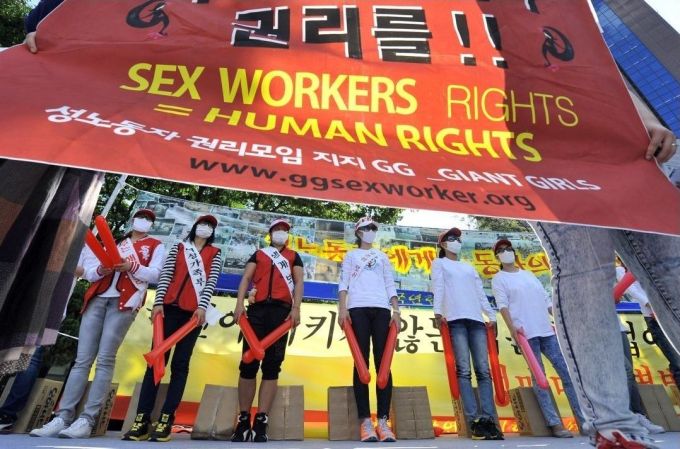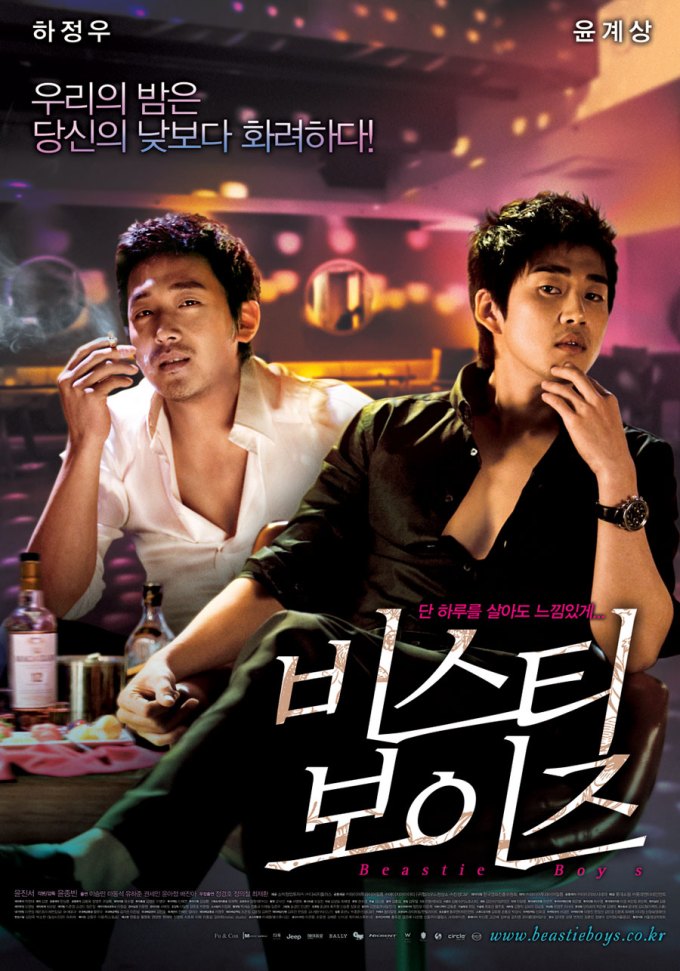Because most sex workers themselves do (duh). But if you’re looking for a deeper explanation, Revolting Prostitutes: The Fight for Sex Workers’ Rights, just out in a Korean translation, would be a great place to start.
Estimated Reading Time: 4 minutes. Sources: Aladin, mikoto.raw Photographer from Pexels.
Once upon a time, I lived with male sex workers in a red-light district in New Zealand, shortly before sex work’s decriminalization there. Truthfully, the experience was no great eye-opening introduction to LGBTQ politics and sex workers’ rights. They were under no obligation to provide one, and were much too busy working, taking drugs, and partying to care anyway, even when they saved time by doing all three simultaneously. Mostly then, what I did learn was how to dance half-naked to Cher’s latest hit on the DJ equipment in our living room, which also happened to have hundreds of thousands of dollars’ worth of Eastern Orthodox iconography of saints hanging on its walls. (It’s a long story.) Under their judgmental eyes, I’d hear a great many confessions from my newfound friends and flatmates over the next 18 months, including letting go of their tough, affected exteriors for a moment and letting me know how much it bothered them that I—who should know better—called them “prostitutes.” Of course I stopped immediately, just like it’s basic respect to automatically defer to people’s preferred pronouns today.
Sadly, since moving to Korea and settling down, I only occasionally dance half-naked in the living room now. (My teenage daughters are somewhat less sad about that.) Also, recent events notwithstanding, I’m a lot less likely to find amphetamines lying around on the floor than I did back then too. Which is a pity, because I needed the energy. For a long time, I was just too sleep-deprived and focused on nappies and piggy-backs to give much thought to sex work. Just between you and me, I may even have been too tired to remember to use the s-word for a while.
Then I started this blog. Although I can’t claim to have personally met sex workers and activists as a result of my eye-catching, shamelessly stolen byline, I have met people who know many well. Again, I learned that worldwide, terms that focus on the job, rather than historical terms that stigmatize with their connotations of criminality and immorality, are generally preferred by sex workers themselves. So I’ve been at pains to use “sex work(er)” ever since. (In Korean, “성노동[자],” rather than the generic “성매매.”)
You may be surprised then, to learn at the visceral reaction you can receive at calling members of a profession what they actually want to be called, as recently explained by Hankyoreh columnist Han Seung-eun:
성노동이라는 단어를 쓸 때면 손끝에서 미세한 진동이 느껴진다. 오랜 시간 성매매를 둘러싼 긴장과 대립을 간접 경험하며 생긴 반응이다. 성매매가 아닌 성노동이라고 표현하는 순간, 이어질 문장들은 사라지고 납작한 메시지만 수신된다. ‘당신은 성매매가 얼마나 성차별적이고 폭력적인지 인정하지 않는군요. 어떻게 성을 사고파는 일을 노동이라 표현하죠? 그 현장이 얼마나 참혹한지 몰라서 하는 말인가요? ’나는 금기가 된 단어를 사용하는 일보다, 그 금기로 인해 더 많은 논의가 이어지지 못하는 현실을 두려워하기로 했다.
When I use the term “sex work,” I feel a slight tingling in my fingertips. I get this physical sensation as an indirect reaction to the tension and confrontation I’ve been feeling for a long time whenever I choose how to discuss the selling of sexual services. You see, as soon as I choose the term “sex work” instead of “prostitution,” all nuance gets lost and I get these dogmatic, stock responses of “Don’t you know how sexually discriminatory and violent it is? How can you describe the buying and selling or sex as just ‘work’? Don’t you realize how horrendous and gruesome it is?” The word was so taboo, that I was scared of using it at all lest it just close the conversation down completely.
Of course, things are more complicated than that. It’s no secret that that those who support the abolition of the sex trade generally prefer the p-word instead. To use the s-word is to declare your politics.
Are things really all that more complicated though? Just on its own objective merits, the p-word has very little to recommend it, as that last link makes clear.
 More to the point, I feel compelled to reiterate that if sex workers think of themselves as workers, then I’m inclined to believe they have good reasons for that. Not so much, to listen to sex work abolitionists—or anyone else—who claim to know the wants and needs of a group better than members of a group themselves.
More to the point, I feel compelled to reiterate that if sex workers think of themselves as workers, then I’m inclined to believe they have good reasons for that. Not so much, to listen to sex work abolitionists—or anyone else—who claim to know the wants and needs of a group better than members of a group themselves.
I stress I’m no expert. But I’ve just found an opportunity to learn more. Through Han Seung-eun’s column (actually a review) appearing in my feed today, I learned of the book Revolting Prostitutes: The Fight for Sex Workers’ Rights (2018) by Juno Mac and Molly Smith, which by all accounts provides a very balanced, nuanced argument for decriminalization (alas, Nordic Model Now! disagrees). Now updated in a 2020 edition, I’m glad to have been made aware of it and to have learned that a Korean translation has recently been released, and the least I could do is to also let you know about it too.
Please check out publisher Verso for ordering information. Unfortunately for Korea-based readers, even with a sale on at the moment the time and cost of sending a paperback from the UK are prohibitive. However, it is very cheap to buy on Aladin.
What are you waiting for?
If you reside in South Korea, you can donate via wire transfer: Turnbull James Edward (Kookmin Bank/국민은행, 563401-01-214324)




![[Image 2] Istvan Gabor Takacs HCLU](https://thegrandnarrative.files.wordpress.com/2012/04/image-2-istvan-gabor-takacs-hclu.jpg?w=680&h=251)

![[Image 4] RPK Social Media Banner](https://thegrandnarrative.files.wordpress.com/2012/04/image-4-rpk-social-media-banner.jpg?w=680&h=251)












